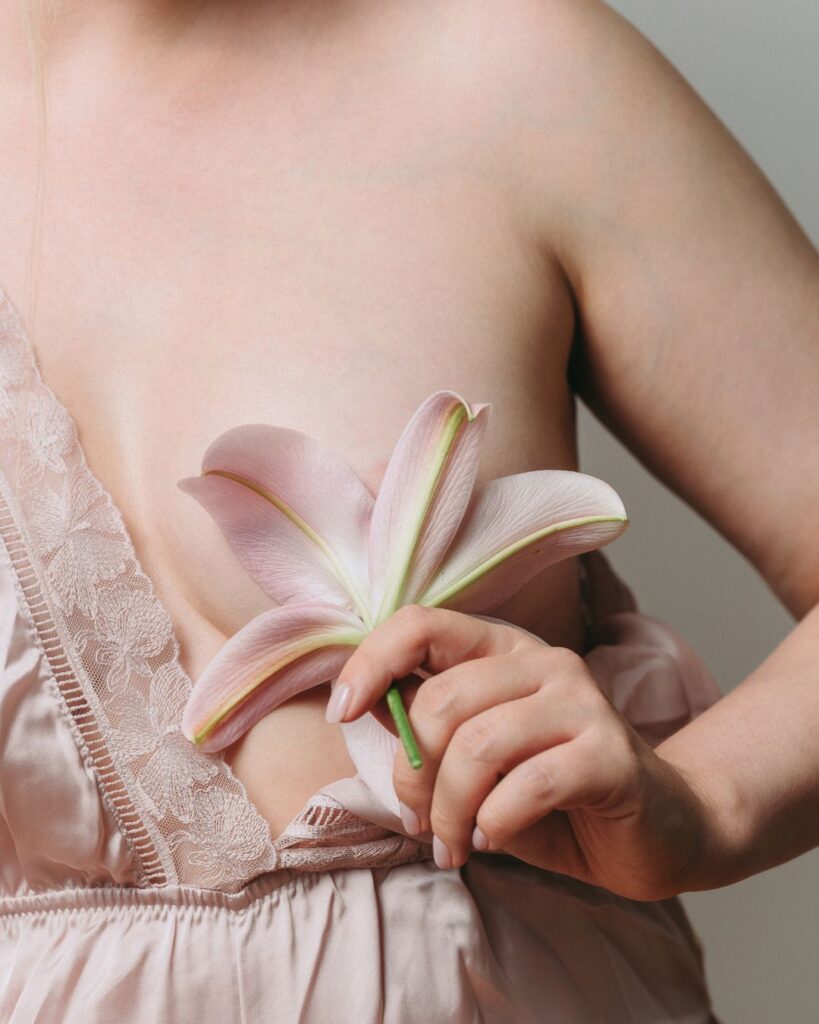Many ladies experience postmenopausal nipple soreness long after their cycle ends, and wonder why it’s still happening. With decades of experience as a menopause health coach, I’ve seen how this symptom often points to deeper hormonal shifts, tissue changes, and nervous system load.
Nipple soreness isn’t often mentioned in wellness circles, but it’s surprisingly common, and deeply frustrating. You’ve crossed the finish line of menopause, your cycle is gone, and yet your breasts still feel tender, sore, or oddly sensitive. What gives?
Let’s break it down.
What Causes Postmenopausal Nipple Soreness?

Even after menopause, your hormones don’t just shut off. Estrogen and progesterone continue to fluctuate at low levels, and that can affect breast tissue in ways that feel confusing. It can show up as:
- Sharp or achy tenderness
- Sensitivity to touch or clothing
- Random soreness that comes and goes
- One-sided discomfort or general breast pain
This kind of midlife breast discomfort is often linked to hormonal changes, but it can also be triggered by:
- Friction from bras or workout gear
- Skin changes like dryness or thinning
- Stress, poor sleep, or nervous system overload
- Recent changes in HRT or supplements
Why It Feels Disruptive
Postmenopausal nipple soreness can feel like a betrayal. You’ve done the work, made the changes, maybe even adjusted your diet or lifestyle – and yet this symptom sneaks in, uninvited. It’s not dramatic, but it’s distracting. And it’s often dismissed.
But here’s the truth: breast tenderness after menopause isn’t random. It’s often a quiet signal that your body is still adjusting and asking for care.
What You Can Do About It
Instead of jumping to fixes or fear, start with rhythm. Your body thrives on predictability, especially in midlife. Support your metabolism, reduce inflammation, and give your nervous system a break.
Here’s what helps:
- Move, but don’t overdo it
Think walks, mobility, or strength work that leaves you more grounded.
- Eat to calm, not control
Anti-inflammatory meals with enough protein and fat can help stabilize hormones and soothe tissue sensitivity. If you need inspiration, my hormone-friendly recipe collection is full of real food that actually supports midlife metabolism.
- Magnesium matters
Whether through food or supplements, it’s one of the quietest ways to ease tension and support breast tissue.
- Regulate before you react
Nervous system care is a strategy. Breathwork, grounding, and better sleep all help. If you’re curious, I’ve got a free guest pass to Calm to get you started.
- And yes, the bra
If it’s digging, pinching, or sliding around, it’s not helping. A proper fit can make a big difference.
If nipple soreness is showing up for you, it’s worth paying attention – not with panic, but with care.
FAQs
Could postmenopausal nipple soreness be a sign of something serious?
Most cases are benign, but it’s worth checking with your provider if the pain is persistent, one-sided, or comes with other changes.
Can poor nutrition and stress make it worse?
Absolutely. Inflammation, poor sleep, and nervous system overload can all amplify tissue sensitivity.
Is this soreness supposed to go away, or is it my new normal?
It’s not permanent, but it’s also not random. Your body’s still recalibrating, and symptoms like this tend to shift with stress, sleep, and inflammation – sometimes quiet, sometimes loud.
Ready When You Are
If postmenopausal nipple soreness has you curious, concerned, or just craving clarity, let’s connect.
Join my newsletter for gentle insights, real food strategies, and symptom support that actually makes sense in midlife.
Book a free discovery call to explore what your body might be signaling:
+ show Comments
- Hide Comments
add a comment